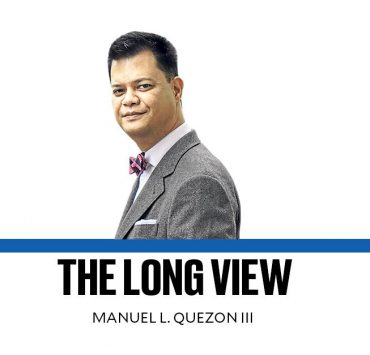Still laden with pork

While the nation was gripped by protests against massive corruption surrounding flood control projects and the successive strong earthquakes that hit northern Cebu and Davao Oriental, the House of Representatives approved on Monday the proposed P6.7-trillion spending plan for 2026 that, unfortunately, leaves much to be desired.
The Marcos administration followed through on its commitment at the start of the budget process in August to have civil society representatives present during the deliberations to herald “a new era of transparency” in the wake of explosive testimonies on corruption-ridden flood control projects under the Department of Public Works and Highways (DPWH). But their participation seemed to be a token gesture as the House approved a budget still laden with pork.
According to those opposed to House Bill No. 4058 or the House version of the 2026 General Appropriations Bill, the chamber “missed the call of the times” when it crafted a bill that retained billions of pesos worth of problematic provisions.
Civil society groups, political, business, and religious leaders have issued statements, citing that “at least” P230 billion in pork barrel and patronage-based projects are in the House version of the 2026 budget.
Patronage politics
Flagged were the aid programs such as the additional P32.06 billion for the Department of Social Welfare and Development’s Assistance to Individuals in Crisis Situation and P14.82 billion for the Department of Labor and Employment’s Tulong Panghanapbuhay sa Ating Disadvantaged/Displaced Workers that had been criticized for reinforcing patronage politics, especially in the provinces.
Red flags were also raised over the additional allocation for the Department of Agriculture’s farm-to-market roads that are also being investigated for corruption and questionable projects of the DPWH such as multipurpose buildings that could end up being overpriced and of subpar quality.
These are on top of the bloated P250 billion in unprogrammed appropriations—standby funds that can be tapped when new revenues or loans are secured—that are feared to be disguised slush funds of corrupt legislators and officials from the executive branch.
Members of the minority and party list blocs in the House had tried to remove all unprogrammed appropriations that “entrench pork barrel politics.” Unfortunately, these proposals were rejected by the House majority.
Cautiously optimistic
Thus, budget advocates who had been cautiously optimistic that the civil society participation would indeed help rid the national budget of these entrenched pork barrel items have “[lost] trust in the integrity of the budget process.”
“While there was an attempt to bring us in a more formal process, it seems like many of the recommendations still fell on deaf ears,” says Kenneth Isaiah Abante, co-convenor of the People’s Budget Coalition comprised of church, business, and civic groups monitoring public spending to protect people’s money, adding that “…all this points to the fact that the system really hasn’t changed.”
There is still hope, however, that the 2026 budget will be stripped of unprogrammed appropriations with Senate finance committee chair Sherwin Gatchalian, Senate President Vicente Sotto, and Senate President Pro Tempore Panfilo Lacson vowing to exorcise the 2026 budget of these controversial items.
Sullied reputations
“Our agreement was that there will be no unprogrammed appropriations in the 2026 budget, but we will allow funding for foreign-assisted projects that are necessary,” said Lacson, who would push for this move when the Senate and the House come together in the bicameral conference committee. He expressed confidence that Filipinos outraged by the rampant and persistent corruption would be on their side when they press for the removal of all unprogrammed allocations.
Lacson’s confidence is buoyed by earlier findings that these unprogrammed funds in previous budgets had indeed gone to the either substandard or outright nonexistent flood control projects, thus, the public would not accept a repeat in the 2026 budget.
Indeed, public pressure must be sustained on the legislators to ensure that every line item will be open to scrutiny and monitoring as the first major step toward eliminating debilitating corruption, the effects of which are already being felt through depressed investor interest and weakening economic growth.
The Senate and the bicameral conference committee can redeem their sullied reputations by removing the pork and the unprogrammed allocations from the final version of the national budget. Ultimately, the buck stops with President Marcos, who must realize that the Filipino citizens are angry and will be watching if he will deliver on his promise to clean up the budget and not allow it to be an instrument of patronage and corruption.





















